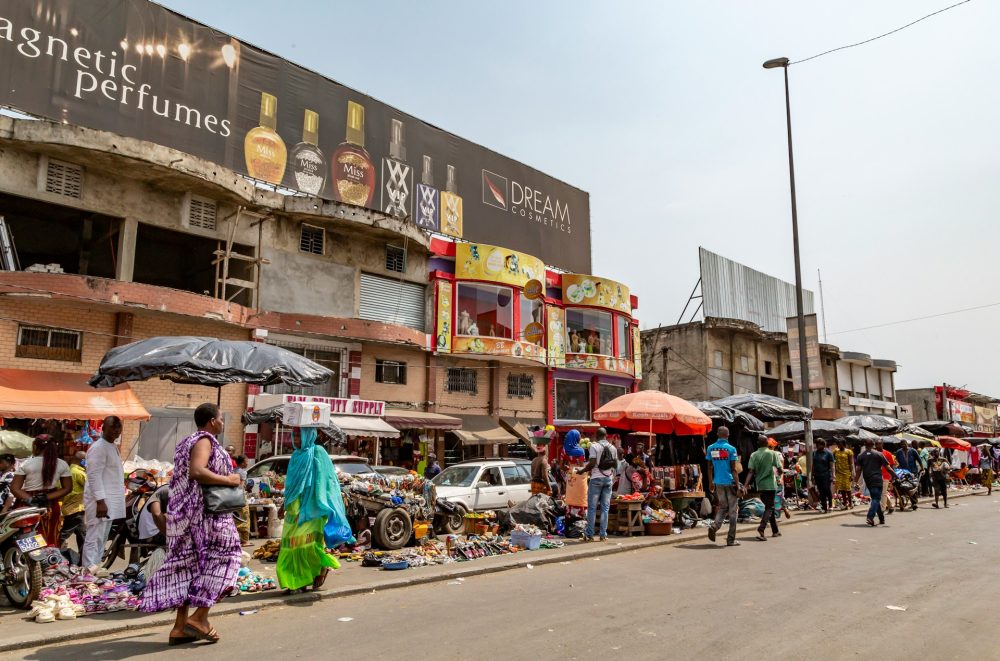Fintech
The Digital Payments System Will Start in 2025, Revealed the Bank of Colombia
Ana María Prieto, director of payment systems at Banco de la República, highlighted the potential of Bre-B, Colombia’s instant payment system, to modernize the financial system and reduce reliance on cash. Bre-B is expected to launch in 2025, improving efficiency and economic competitiveness through immediate payments and enhanced interoperability across the financial system.

In the Latam Fintech Market, one of the most relevant topics is the reduction in the use of cash in Colombia, which currently stands at 70%, and the start of a digital payments system.
That is why Ana María Prieto, director of payment systems at Banco de la República, addressed this challenge and spoke about Bre-B, Colombia’s instant payment system. According to Prieto, a digital payments system has the potential to transform the country’s financial system.
“The battle against cash is what unites us,” said Prieto, stressing that immediate payment systems are key to reducing dependence on cash, a means of payment that he described as inefficient and detrimental to the competitiveness of economies.
Regarding the start of operations of the digital payments system, the director commented that they expect Bre-B to begin operating in 2025 , and that they are currently working on the guidelines and guidelines for its implementation and education to the public.
Prieto also made it clear that “ Bre-B is not a product of the Banco de la República, it belongs to all Colombians.”
She explained that the Central Bank intervenes in the system to ensure the proper functioning of payments in the economy. As the monetary authority, the Bank of the Republic is responsible for establishing the necessary regulations to guarantee interoperability, as well as providing the operational infrastructure that the digital payments system requires.
Prieto insisted that Bre-B represents a crucial step to modernize payments in Colombia , with the aim of reducing the use of cash and improving efficiency in the economy.
What does the Superintendency of Finance say about the digital payments system?
For his part, César Ferrari, Colombia’s Financial Superintendent (SFC), highlighted the advances in open finance and said he is convinced that, if they are not made mandatory, this system can never be implemented effectively.
Ferrari explained that, together with the Ministry of Finance , they are creating a space to propose that open finance be mandatory, and mentioned that the National Development Plan already includes a concept that covers not only finance, but also data.
Regarding the regulation of fintech, the superintendent pointed out that they are submitting an intelligence project that has improved the quality of the regulations , especially in the writing and reading of documents
Among the changes Ferrari mentioned are the elimination of obsolete guidelines, unnecessary repetitions and useless elements within the Basic Legal Circular. These adjustments, he said, will allow for better competition in the fintech sector , simplifying the regulations so that not only lawyers can understand them.
Finally, Prieto emphasized two key points, in addition to indicating the challenges facing the system. First, immediate payments are a tool to improve competitiveness and economic development, boosting credit, promoting formalization and facilitating the implementation of public policies.
The second refers to interoperability, which is essential for the adoption of digital payments. The system must allow the movement of money throughout the economy in a scalable and accessible way. “Despite the progress in financial inclusion and digitalization, the challenge now is to advance the interoperability and usability of the payment system.”
__
(Featured image by Christiann Koepke via Unsplash)
DISCLAIMER: This article was written by a third party contributor and does not reflect the opinion of Born2Invest, its management, staff or its associates. Please review our disclaimer for more information.
This article may include forward-looking statements. These forward-looking statements generally are identified by the words “believe,” “project,” “estimate,” “become,” “plan,” “will,” and similar expressions. These forward-looking statements involve known and unknown risks as well as uncertainties, including those discussed in the following cautionary statements and elsewhere in this article and on this site. Although the Company may believe that its expectations are based on reasonable assumptions, the actual results that the Company may achieve may differ materially from any forward-looking statements, which reflect the opinions of the management of the Company only as of the date hereof. Additionally, please make sure to read these important disclosures.
First published in elCOLOMBIANO. A third-party contributor translated and adapted the article from the original. In case of discrepancy, the original will prevail.
Although we made reasonable efforts to provide accurate translations, some parts may be incorrect. Born2Invest assumes no responsibility for errors, omissions or ambiguities in the translations provided on this website. Any person or entity relying on translated content does so at their own risk. Born2Invest is not responsible for losses caused by such reliance on the accuracy or reliability of translated information. If you wish to report an error or inaccuracy in the translation, we encourage you to contact us

-

 Markets2 weeks ago
Markets2 weeks agoGold’s Historic Surge and Sudden Crash Signal Volatility, Not Defeat
-

 Cannabis5 days ago
Cannabis5 days agoWhen a Cutting Becomes a Cannabis Plant: Court Clarifies Germany’s Three-Plant Rule
-

 Africa2 weeks ago
Africa2 weeks agoIvory Coast Development Plan 2026–2030: Investment, Growth, and Strategic Reforms
-

 Africa11 hours ago
Africa11 hours agoMASI Surge Exposes Market Blind Spot: The SAMIR Freeze and Hidden Risks
























